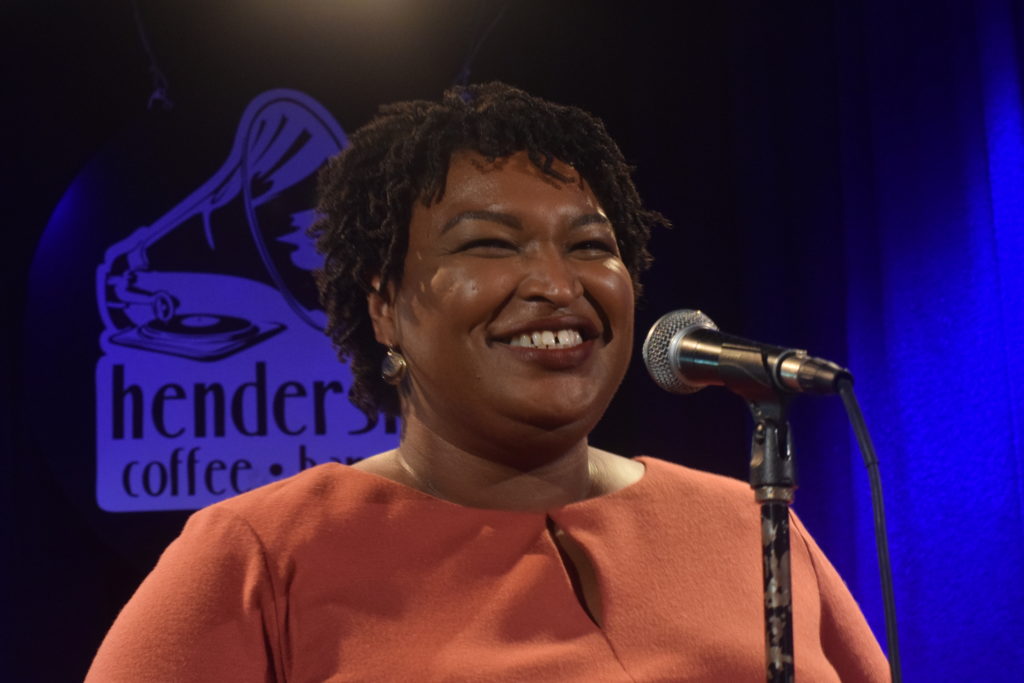
Hoping for a change
The morning of Nov. 9, 2016, I woke up to the sound of my mom crying in the other room. Immediately I knew why: Trump won the election. I went to sleep the night before with my parents’ promise that when I woke up the next morning there would finally be a woman in the White House. I was jolted out of sleep to a different reality. This is the first election experience I remember.
Trump’s presidency was my introduction to politics. When the adults around me were shocked about the many outrageous, unorthodox things he did, I was trying to understand why it was so outrageous. To me, it was normal that the President communicated to the public through Twitter. I could not fully grasp why insulting and mocking your political opponents wasn’t presidential behavior.
I was 10 years old when Trump was elected and only starting to become politically aware.
Because of this, it should be no surprise that I am cynical and pessimistic about politics. As the U.S. political climate is embroiled in petty cultural wars and political inefficiency, my hopes for a more progressive future feel more and more futile.
Getting my hopes up just feels like an opportunity to be disappointed, especially being too young to vote. But recently my predictions have been wrong. I was shocked when Biden won last year and even more shocked when Georgia went blue. Then I was wrong again when Georgia elected two Democratic senators.
I have a different attitude about Georgia’s 2022 governor’s race. I feel genuinely excited and passionate about Stacey Abrams running again. Not only does her platform speak to me, but her work against voter suppression makes me hopeful about the direction of our nation and the part Georgia is playing in it.
During the 2018 gubernatorial race between Brian Kemp and Abrams, I felt excited that someone like Abrams could be Georgia’s leader but doubtful it would come to pass. The results only reinvigorated my negativity. Abrams lost by 1.4% or a little less than 55,000 votes.
On paper Abrams is the kind of candidate that I support. She opposes fetal heartbeat bills and school vouchers and supports expanding Medicaid and increased gun control. Not only are her values aligned with mine, but I also see her as a much-needed change in the history of Georgia’s governors. If elected, Abrams would be the first Black female governor in United States history, and both the first female governor and first Black governor of Georgia.
Instead of fading into the background when she lost in 2018, Abrams fought back against the unjust electoral system that hindered some voters from participating in her election. The same year she founded Fair Fight Action, which works to help elections, specifically Georgia’s, become more equitable through voter registration and advocacy for election reform.
During the 2020 election, Abrams garnered national attention for her work to mobilize voters, a key factor in turning Georgia blue. Leading up to the election two of her organizations, Fair Fight and the New Georgia Project, registered over 800,000 new voters, or 745,000 more than the margin she lost by in 2018. Later she was nominated for the 2021 Nobel Peace Prize for her voting rights activism.
Abrams is well-established and highly regarded enough that I — a cynic about elections swaying my way — am able to see her realistically winning. I see her rise to nationwide political recognition as a sign that optimism has a place. After all, Abrams, who was raised poor in the 1970s South, beat odds herself in becoming a successful politician.
Still, when I start to become hopeful about the election I can’t help but hesitate. Virginia, a blue state in the 2020 presidential election, voted against re-electing its Democratic governor and instead elected a Trump-endorsed Republican to office. Democratic in-fighting in Congress is harming the party’s reputation and ability to effectively legislate. Abrams needed slightly less than 55,000 votes to win in 2018. That’s an intimidating amount of voters. And most of all is Georgia really willing to elect a Black woman as governor?
Optimism isn’t generally something I’m prone to, but I’m starting to see how this outlook negatively affects my attitude and psyche. When I consistently expect the worst I find myself being unhappier and more apathetic. I’m trying to embrace the hope Stacey Abrams makes me feel about the future that I usually visualize as bleak and destitute. Even if she doesn’t win, I’m going to try to maintain that hope.



